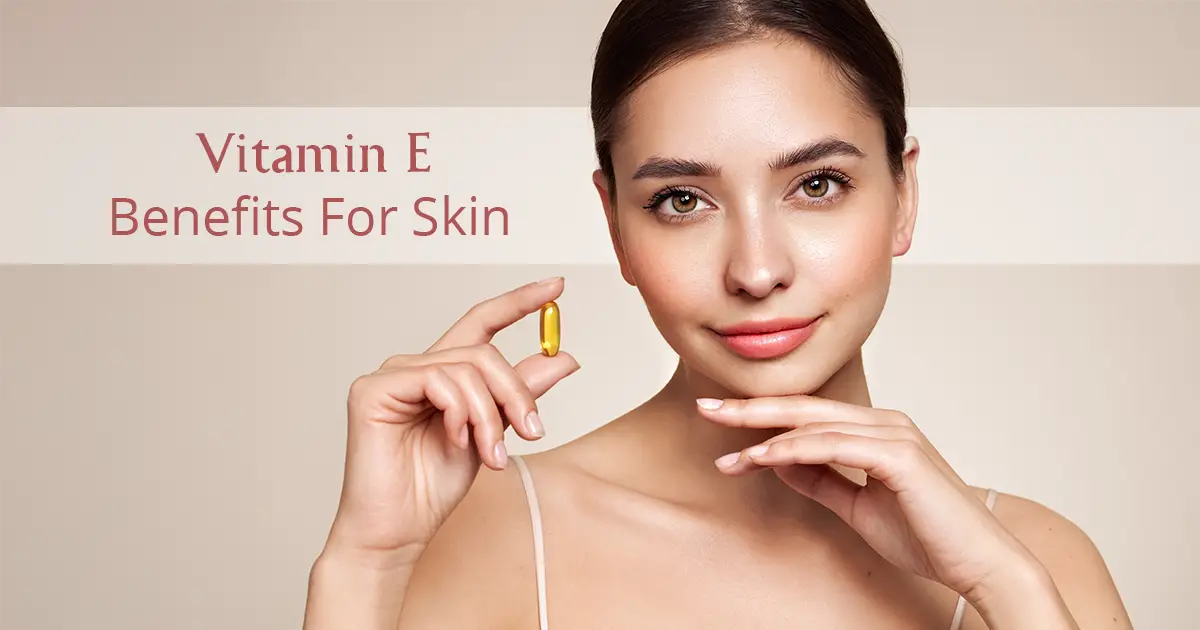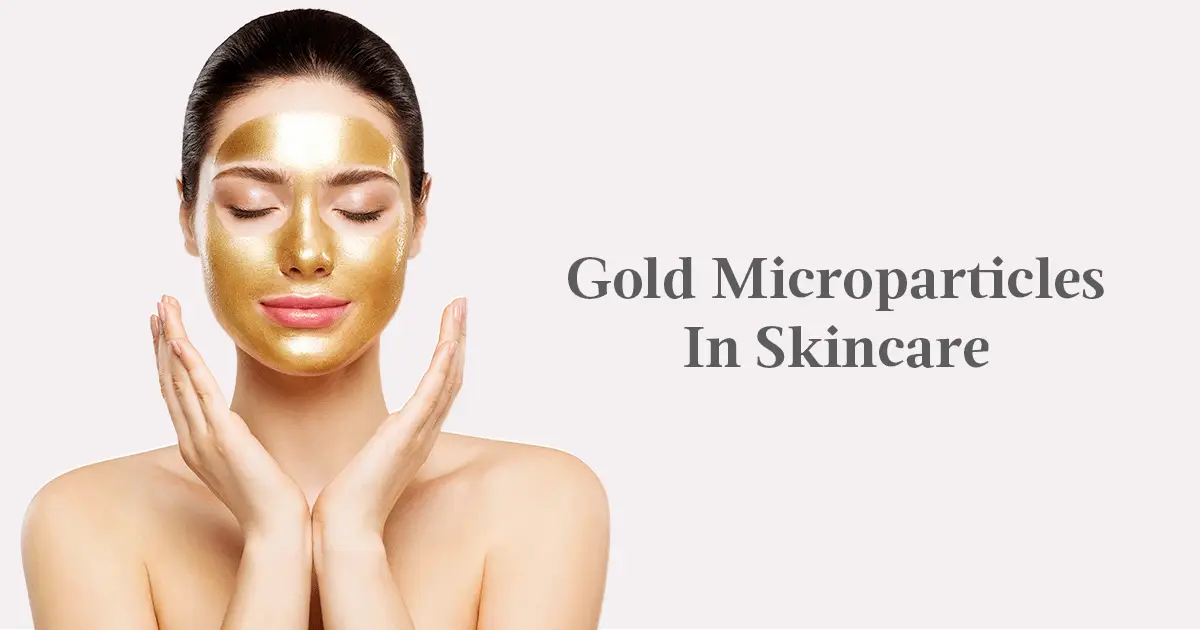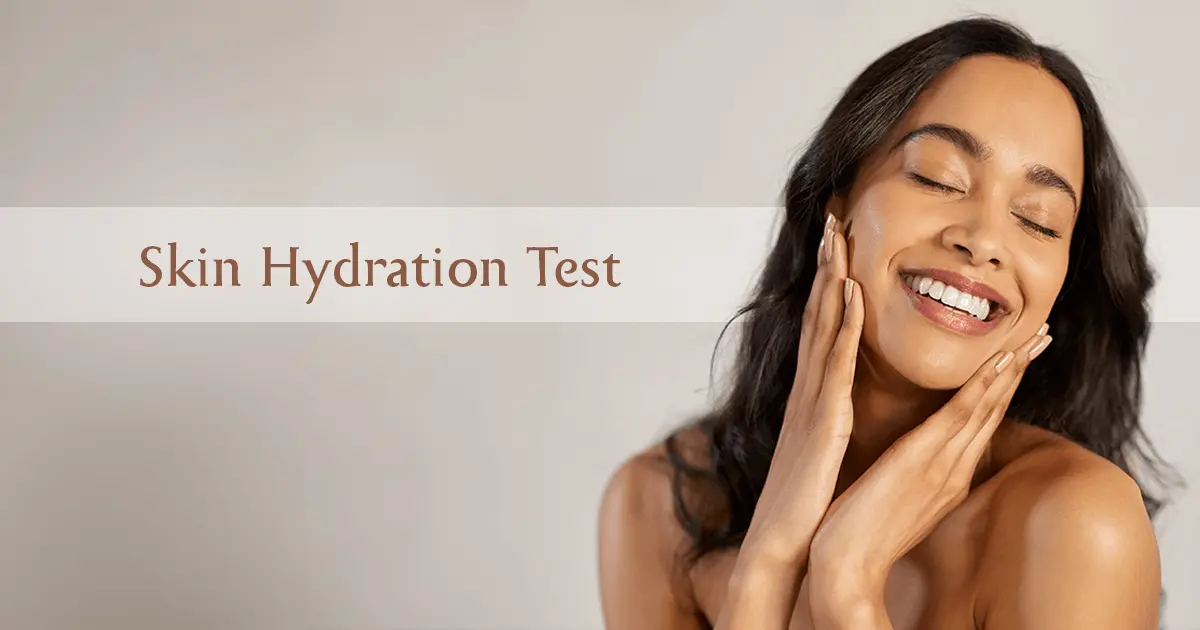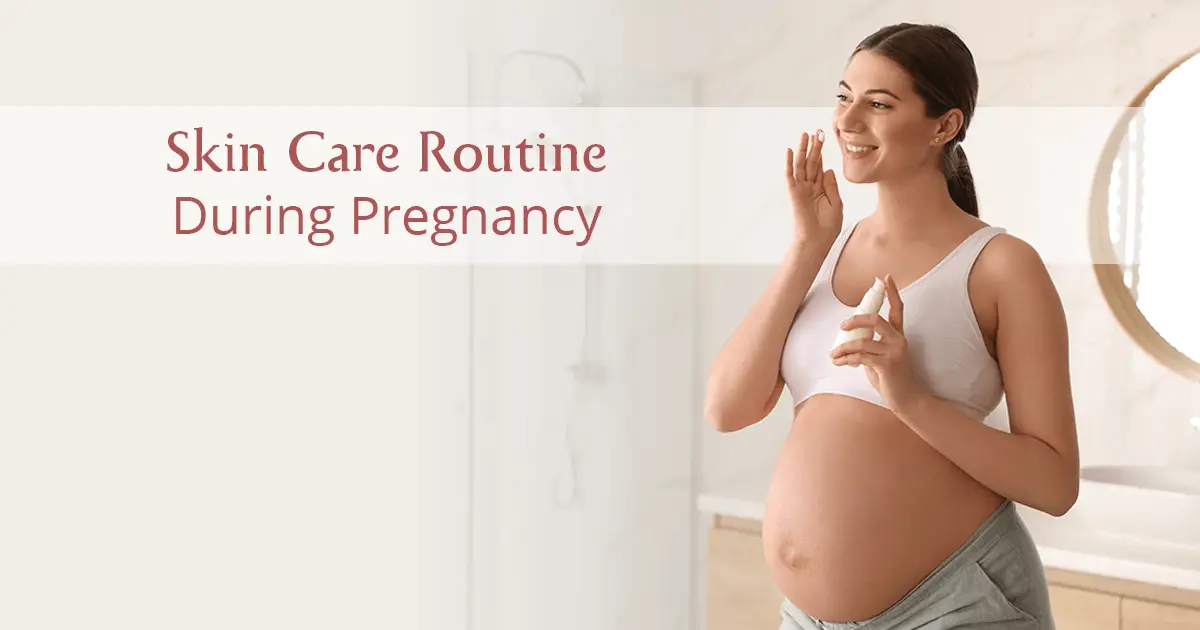
What if a single nutrient could protect your heart, boost your immunity and make your skin glow? Well, we are talking about Vitamin E—the unsung hero that can work wonders for your well-being! Vitamin E is a versatile vitamin that can be added to your diet, taken as supplements or even applied topically to your skin. In this blog, we’ll be highlighting how Vitamin E benefits your overall health. And how you can incorporate it into your diet and skincare.
Post Contents [hide]
What is Vitamin E?
Vitamin E is a fat-soluble vitamin and a powerful antioxidant that helps protect your body’s cells from damage. Stored in fat reserves and the liver, it plays a crucial role in supporting heart health, immunity, and metabolic functions.1 2
How Much Vitamin E Do You Need Everyday?
The recommended daily dose of Vitamin E varies from person to person depending on their age. It’s also quite different for breastfeeding women. According to the NIH, adult males and females should consume 15 mg of Vitamin E daily. For more details on age and category-specific requirements, refer to the following chart:1
| Age | Males & Females | During Pregnancy |
During Breastfeeding |
| 0–6 months* | 4 mg | ||
| 7–12 months* | 5 mg | ||
| 1–3 years | 6 mg | ||
| 4–8 years | 7 mg | ||
| 9–13 years | 11 mg | ||
| 14+ years | 15 mg | 15 mg | 19 m |
*Adequate Intake (AI)
Source: NIH
Are Vitamin E Supplements Necessary?
A healthy diet most likely fulfils your daily requirements of Vitamin E. And there usually isn’t any need for taking supplements. However, some people have a deficiency in fat absorption such as those suffering from intestinal disorders (eg, Crohn’s Disease). They might be deficient in Vitamin E. So it’s always best to check with your doctor and understand if your body needs additional supplementation.3
Benefits Of Vitamin E For Your Overall Health
Vitamin E, a fat-soluble antioxidant, plays a crucial role in maintaining overall health by protecting cells from oxidative damage. Found naturally in foods such as nuts, seeds, and leafy green vegetables, Vitamin E has been extensively studied for its wide-ranging health benefits. Here's a closer look at how vitamin E supports general health:
1. Helps Fight Cell Damage (Oxidative Stress)
Every day, your body faces stress from pollution, poor diet, and even normal metabolism, all of which produce harmful molecules called free radicals. Vitamin E acts like a shield, neutralising these molecules before they can damage your cells. Some studies show that vitamin E can help reduce levels of substances that indicate oxidative stress in the body, making it a strong ally for long-term health.4
2. Supports Heart Health
Heart disease is often linked to inflammation and damage to blood vessels. Vitamin E may help reduce some of these risk factors. It’s been studied for its ability to improve blood flow, reduce inflammation, and prevent harmful cholesterol from building up in your arteries. While results vary, it could be helpful; especially if your diet is low in antioxidants. 1 5
3. Helps Improve Fatty Liver Disease (NAFLD)
Nonalcoholic fatty liver disease is a condition where fat builds up in the liver, often due to poor diet or obesity. Research suggests Vitamin E might help reduce liver inflammation and improve how the liver functions, especially when combined with healthy lifestyle changes. 6
4. Eases Menstrual Pain
If you struggle with painful periods, vitamin E when taken along with Vitamin C might offer some relief. Studies show that it may reduce the intensity and duration of cramps by calming down inflammation and regulating certain hormones that cause the uterus to contract.5 7
5. Other Ways Vitamin E Supports Health
- Great for Your Skin: Vitamin E is a common ingredient in skincare for good reason. It helps keep skin hydrated, may reduce the appearance of scars, and protects against sun damage. It also plays a role in wound healing. 3 8
- May Protect Your Brain: Oxidative stress is thought to contribute to memory loss and brain aging. Some research links higher vitamin E levels to slower cognitive decline in older adults. 9
- Supports Lung Health: When it comes to protecting your lungs, vitamin E might offer some surprising benefits. Research shows that getting enough vitamin E from your diet; could lower your risk of developing lung cancer. In fact, one analysis found that for every small increase of just 2 mg of Vitamin E in your daily diet, the risk of lung cancer dropped by about 5%. 10
Vitamin E Benefits For Your Skin
There are several ways in which Vitamin E is beneficial for your skin health:
1. Moisturises Skin
Vitamin E is a powerhouse ingredient for deep hydration, helping to prevent dryness and itchiness. That’s why many skincare brands include it in their formulations. Vitamin E oil is also a popular choice for added moisture, but before applying it directly to your face, it’s best to consult a dermatologist to ensure it suits your skin type.3 4
2. Protects Against Damage
Vitamin E is an antioxidant and an anti-inflammatory agent. It naturally protects your skin against free radicals, pollutants and the damaging effects of UV rays from the sun. Vitamin E also nourishes your skin, makes it more supple and prevents the formation of wrinkles.5
3. Soothes Skin
Due to its anti-inflammatory properties, Vitamin E can be applied to sensitive skin to ease redness, itchiness and inflammation. It is because of these properties that dermatologists recommend Vitamin E for the treatment of inflammatory conditions of the skin such as eczema and psoriasis.
4. Improves Wound Healing
Some studies have also found that Vitamin E can support wound healing after cuts or burns. And it can also help minimise the formation of scars. Doctors often recommend Vitamin E after surgery to minimise post-surgical scar formation.5 8
5. Brightens Skin
Vitamin E can help your skin appear better and brighter. To reap its benefits, you can either start using it topically on your skin or eat a diet rich in Vitamin E. Both ways, the results can be rewarding for your skin.3
Which Foods Are Rich In Vitamin E?
To improve your intake of Vitamin E, you can start adding the following food items into your diet: 9
1. Seeds & Nuts
Almonds, brazil nuts, peanuts, pine nuts, sunflower seeds, etc are rich sources of Vitamin E. You can simply munch on them as an evening snack or add these to your salads or desserts.
2. Cooking Oil
Wheat germ oil and sunflower oil are very good sources of Vitamin E. Preparing meals using these cooking oils as a cooking medium can help you improve your Vitamin E levels.
3. Fruits
Fruits such as mangoes, kiwi fruit and avocados are great sources of Vitamin E. So don’t forget to include these in your daily diet.
4. Vegetables
Spinach and red capsicum are vegetables that contain high levels of Vitamin E. They must make up a portion of your everyday lunch or dinner if you’re looking to boost your Vitamin E intake.
Too Much Vitamin E: Are There Any Side Effects?
Yes. Too much of the vitamin can cause toxicity. Although this is not possible by diet alone, taking Vitamin E supplements might lead to a much higher than recommended daily intake and cause toxicity. This can lead to bleeding events such as a brain haemorrhage.10
Who Should Avoid Taking Vitamin E Supplements?
Vitamin E can make certain health conditions worse. So people with a history of heart-related diseases or those undergoing surgery must talk to a doctor before taking Vitamin E. Additionally, Vitamin E can also interact with many drugs and cause adverse reactions. Some of these drug classes are:11
- Alkylating Agents (Used in chemotherapy)
- Anti-Tumor Drugs
- Anticoagulants (Blood thinners)
- Anti-Platelet Drugs (aspirin, etc)
- Statins & Niacin
- Vitamin K
Conclusion
Vitamin E is a versatile nutrient that not only benefits your body but also improves your skin. And the best way to include it in your diet is by consuming fruits, vegetables, meat and other food items that contain this vitamin. To incorporate it into your skincare routine, you can look for moisturisers or products that contain vitamin E as an active ingredient.
P.S.: If you’re a new mom, don’t forget to check out AreoVeda’s Post Natal Massage Oil which is enriched with the goodness of Vitamin E. AreoVeda is India’s 1st skincare brand to be EWG Verified, ECOCERT Certified and Cellularly Proven. For more details, visit www.areoveda.in.











